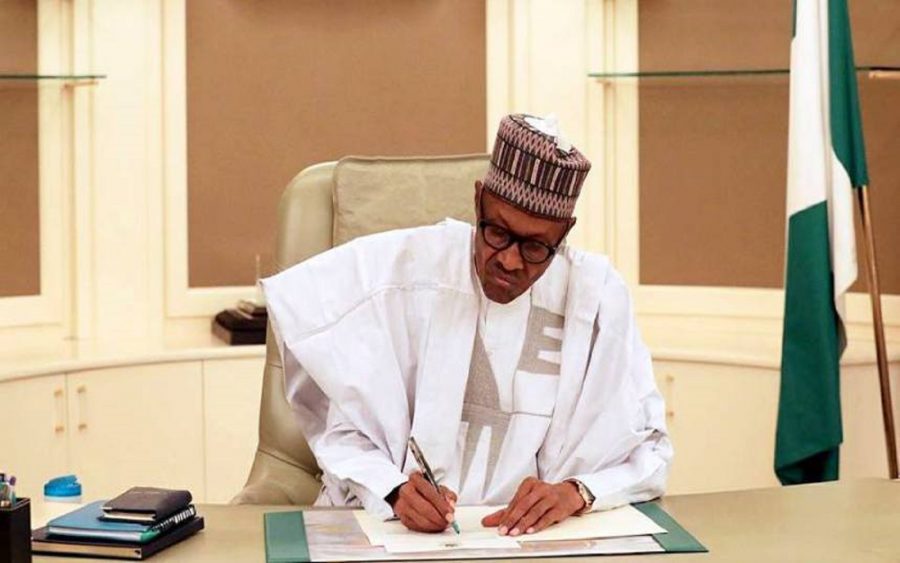The Federal Government of Nigeria (FGN), on 8 October 2018 (Effective Date), issued Executive Order 008 (Order), backing the implementation of the Voluntary Offshore Assets Regularisation Scheme (VOARS or the Scheme).
The Scheme, which encourages voluntary declaration of offshore assets, is aimed at combating money laundering and tax evasion. In this regard, FGN plans to set up a VOARS Facility in Switzerland, as its intermediary for the implementation which will be done in conjunction with relevant authorities in Switzerland.
Benefits
Similar to Voluntary Assets and Income Declaration Scheme (VAIDS) launched in 2017, VOARS will afford participants several benefits such as:
- The opportunity for participants to regularise their tax status (with respect to offshore assets and income) for a period of up to 30 preceding years
- Permanent waiver of all interest and penalties on declared and regularised assets
- Immunity from tax audit from the declared assets and grant of an Offshore Assets Regularisation Compliance Certificate from FGN on declared assets
- Ability to freely use/invest the assets, subject to continuous payment of taxes to FGN
Needless to say that noncompliance with this Scheme brings the full wrath of FGN and tax authorities on such defaulters, with no opportunity for a plea bargain and liability to pay accrued interest/penalty.
Eligibility
VOARS does not impose tax. On the contrary, it canvasses for open and honest declaration from:
- All persons, entities and their intermediaries holding offshore assets (including those currently undergoing tax audits/investigation and excluding persons that are under investigation – either by Nigerian law enforcement agencies or otherwise, and have been charged with crimes including theft of public funds or obtaining offshore assets through corrupt practices); and
- Have not been tax compliant with respect to their offshore assets. Thus, if relevant persons have been compliant for tax purposes, there is no requirement to consider the window offered by VOARS.
Procedure
It is important to note that the benefits conferred by the Scheme are conditional upon defaulters agreeing to:
- Voluntarily access VOARS by paying 2% VOARS Facility access fees within 12 months from the Effective Date;
- Voluntarily and truthfully declare their offshore assets and incomes and pay a one-time levy of 35% on the total value of the assets (pursuant to assessments issued by the relevant tax authority);
- Submit to compliance procedures required by Swiss authorities in order to obtain VOARS eligibility certificate;
- Establish a Swiss nexus for their offshore assets held anywhere else in the world or its management in Switzerland or through its financial system and institutions; and
- Avoid and stop further tax evasion and ensure full tax compliance on residual offshore assets.
General comments and conclusion
VOARS is a laudable development and emphasizes government’s renewed focus on taxation as a viable tool for revenue generation and economic development. It is important to note that Nigeria is part of the newly introduced global standard on Automatic Exchange of Information (AEOI). AEOI provides for the exchange of non-resident financial account information with the tax authorities in the account holders’ country of residence.
This implies that the Federal Government of Nigeria has free access to information of Nigerian tax residents with respect to their offshore assets and can launch a parade of investigations accordingly.
While VOARS is a good development, it appears to be laden with some ambiguities in scope and implementation, some of which are set out below:
- The Order provides that it will be read in conjunction with extant tax laws. It is however silent on the implication of any contradictions with extant laws.
This could play in a number of instances:- The Order suggests that ownership of (offshore) assets creates tax obligations on the entire assets and their owners – this may not be entirely accurate. In reality, only profits/gains on assets are taxable; not the actual asset base.
- In addition, the Order stipulates that the 35% one-time payment will be based on the total value of the offshore assets. However, there is no mention of how the value of the assets would be determined. Would the value be based on historical cost or current market value?
- Furthermore, based on Section 13 of Personal Income Tax Act, it is arguable that income derived outside Nigeria is only taxable in Nigeria when brought into or received in
Nigeria. Additionally, for employees, the entire assessable/total income is limited to the employment income in Nigeria, thus it is uncertain how this provision will impact such employees that derive income from sources outside Nigeria which is not brought into or received in Nigeria.
Nonetheless, the most important requirement on eligibility is non-compliance with tax laws. Therefore, where a taxpayer is compliant with tax laws, VOARS becomes redundant. - There are tax exemptions on offshore assets (including previous amnesty programmes) that taxpayers might have utilized. Will these exemptions/waivers be negated by this Order?
- The implication of VOARS on taxpayers who already took advantage of VAIDS is unclear.
Could tax authorities seek to rely on VOARS to re-open cases? - The implementation steps also appear cumbersome and laden with a lot of transaction cost (which may breed noncompliance). We expect that the Federal Government will provide more information that will clarify these issues as soon as practicable.
- The implication of VOARS on taxpayers who already took advantage of VAIDS is unclear.
The above notwithstanding, we encourage taxpayers that may be caught by the provisions to take advantage of this opportunity to identify areas of non-compliance with their tax obligations and take steps for remedial action within the timeframe stipulated by the Order.























